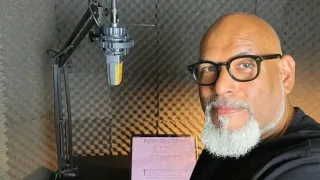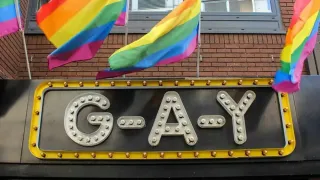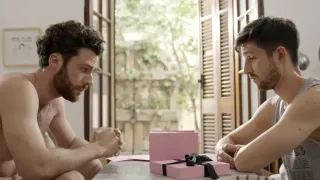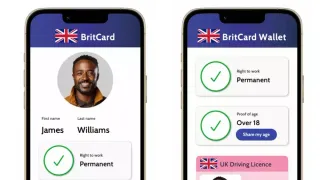April 5, 2015
International Gay News Roundup
Kilian Melloy READ TIME: 3 MIN.
Six gay ambassadors came together recently to discuss their experiences serving abroad.
The panelists included Ambassador to Australia John Berry, Ambassador to the Dominican Republic James Brewster, Ambassador to Denmark Rufus Gifford, Ambassador to the Organization for Security and Cooperation in Europe Daniel Baer, Ambassador to Spain James Costos and Ambassador to Vietnam Ted Osius.
Stuart Milk, the gay nephew of gay assassinated San Francisco supervisor Harvey Milk and president of the Harvey Milk Foundation, moderated the March 24 discussion, which included talking about challenges and changes that needed to be made as well as progress of the LGBT community globally.
"It's very important to have out and open and visible service ... We have to have LGBT people visible, even in difficult places," said Milk.
Baer talked about LGBT rights "backsliding in a number of places" around the world. He pointed to Kyrgyzstan and former Soviet republics seeking to ban so-called gay propaganda bills similar to Russia, reported the Washington Blade.
"We keep pushing," said Baer. "We keep doing what we're doing."
Among the guests was Randy Berry, the newly appointed global LGBT envoy. Berry will begin his new job April 13.
In addition to the Milk foundation, the event was sponsored by the Human Rights Campaign and Gays and Lesbians in Foreign Affairs Agencies.
Putin Tries to Stop UN Benefits
An attempt by Russian President Vladimir Putin to stop the United Nations from extending benefits to same-sex couples at its embassies failed last month.
The UN General Assembly budget committee voted 80-43 against the proposal. There were 37 abstentions and 33 countries did not vote, according to media reports.
This means spouses of members of the Foreign Service can now receive benefits, a promise UN General-Secretary Ban Ki-moon made in July 2014.
Russia received support for its proposal from India, Pakistan, Saudi Arabia, and other countries.
Russian Court Dismisses Fine Against LGBT Youth Group Founder
The founder of a Russian LGBT youth support group has won a victory, at least for now.
A judge in Nizhny Tagil, where Victory for Children-404 founder Elena Klimova lives, didn't find that the 27-year-old journalist violated Russia's Anti-Homosexual Propaganda law with her social media site Children-404, which provides support to Russia's LGBT youth.
Klimova, whose first name is sometimes spelled as Lena or Yelena, founded the social media LGBT youth support group in 2013. She created the group in response to the Anti-Homosexuality Propaganda legislation signed into law by President Vladimir Putin in June of that year.
The group's name is taken from the common error message - 404 Error - that is received when a link is broken or a website is unavailable.
In a post to VKontakte, a Russian social network, after the March 25 ruling, Klimova explained her legal team included a report from an independent investigation conducted by Roskomnadzor, Russia's federal communications commission, which had charged her with the violation.
"That expert did not see propaganda of non-traditional sexual relations among minors in my actions," wrote Klimova, who was fined 50,000 rubles ($780) by a court in January.
Klimova filed her appeal soon after the ruling, arguing that she didn't break the law and that the court violated procedure in reviewing her case.
On March 25, the judge agreed and the case was returned to the magistrate court.
Klimova's legal battles aren't over yet. She still faces another potential legal challenge from a youth activist from Putin's United Russia party in St. Petersburg. The case is backed by the general prosecutor's office and its goal is to have Children-404 blocked in Russia, reported Buzz Feed.
Latvia Launches Crowdfunding Campaign for EuroPride
EuroPride organizers in the host city Riga, Latvia launched a crowdfunding campaign March 25.
Organizers' goal during the 30-day campaign is to gain support from around the world to fill the financial gap due to the lack of international corporate sponsors coming onboard with the Pride event
EuroPride is June 15-21.
Latvia will be the first post-Soviet Union country to host EuroPride. The country is also celebrating a quarter century since it regained its independence from the Soviets.
"This is the first time that EuroPride is taking place on the European Union's eastern border with Russia, which is an opportunity to draw global attention to this region," wrote Kaspars Zalitis, co-chair of EuroPride 2015.
Zalitis hopes EuroPride 2015 will garner attention for the region and lead international support to help promote LGBT rights and have Latvia stand in solidarity with "those struggling to fight oppression of LGBT rights just across the border."
The festival is already experiencing resistance from a group calling themselves the "Anti-Globalists." The group found a loophole in the law and is attempting to block EuroPride.
To support EuroPride 2015 in Latvia, visit www.rockethub.com/projects/55248. The campaign ends April 24.
Got international LGBT news tips? Call or send them to Heather Cassell at 00+1-415-221-3541, Skype: heather.cassell, or [email protected]






